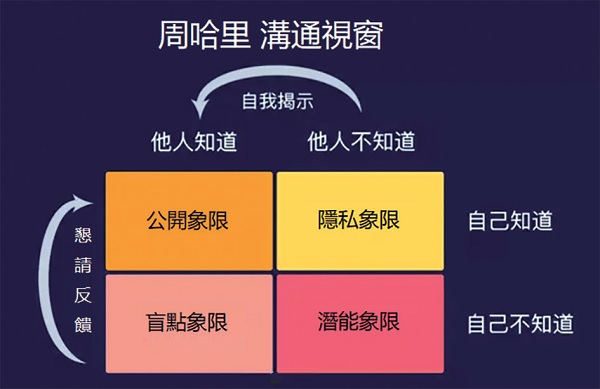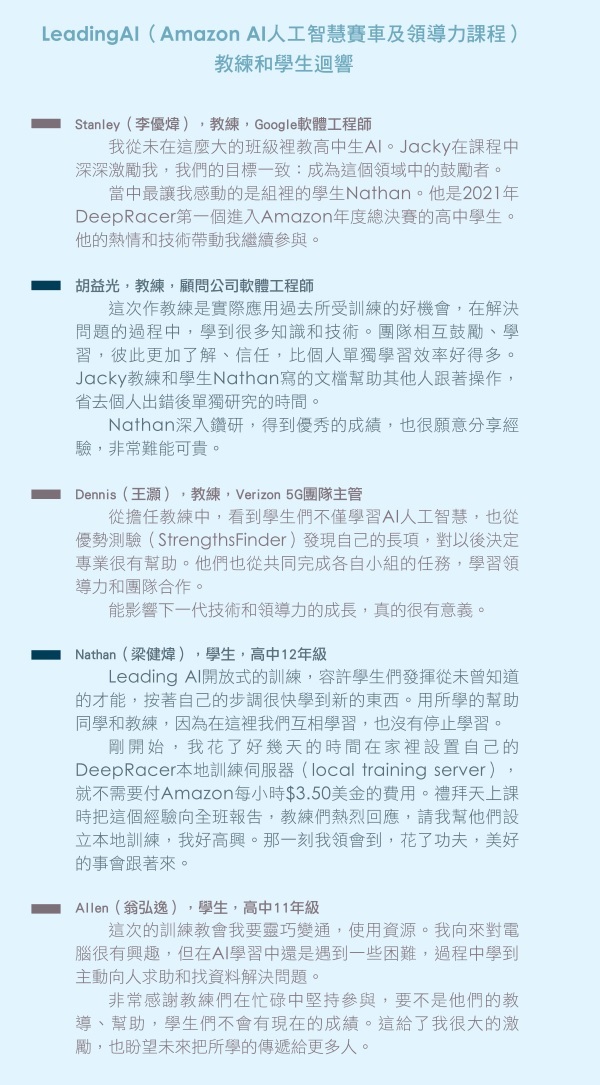Dare to grow
Leaders who see hope in frustration [Heavenly Leadership] Series 4
Oral narration/Chen Dejian‧Compilation/Lin Minwen


▲If leaders see hope when they encounter setbacks and have the courage to grow, they can continue to exert influence.
Leadership is influence. Even if you are not in a leadership position, you and I can lead as long as we are willing to learn and practice.
From the first three articles in this series, we learned the three stages of cultivating leadership: how to understand yourself from four dimensions and discover a new meaning of life (Issue 63); in the process of leading yourself to live out your life calling, find Angels of love who encourage and accompany with true love (Issue 64); a leader who leads others is an encourager who builds the lives of those he leads (Issue 65).
The keys to these three stages are: 1) From not knowing to knowing, you need to gain knowledge through teaching; 2) From knowing to understanding, you need to gain wisdom through inspiration; 3) From understanding to doing, you need to gain encouragement through encouragement Get courage.
After passing through these three stages, can you become an outstanding leader and exert influence? What kind of challenges will you encounter in practice? This article will introduce communication windows and growth thinking, and encourage readers to see hope even in the face of setbacks, continue to practice, and become a leader who dares to grow.

(Photo courtesy: Chen Dejian)
communication window
When Christian leaders lead others, they must firstly have the presence of the Holy Spirit (essence), and secondly, establish mutual communication and trust (skills). The previous article mentioned Barnabas, who was known for his "consolation". Acts 11:24 says that he"A good man, full of the Holy Spirit and great faithHeart", it can be seen that his beliefs and actions to comfort people originate from the Holy Spirit and faith. Because of the inner change of the Holy Spirit, we learn and practice to see the potential value of people with Christ's "graceful vision."
"Johari Window" can help us get to know people, have better communication, and build trust. These four windows include:blind spot(You don’t know it but others know it);public(Known by oneself and known by others);privacy(You know it but others don’t);potential(Neither you nor others know).
In order to allow people to better understand themselves and build mutual trust, it is actually necessary to actively open the public quadrant, reduce blind spots through "asking for feedback", and appropriately reduce privacy through "self-disclosure" to enhance mutual understanding. When communication with others increases and the window of publicity expands, the potential that was originally little known and rarely utilized is also developed.
While leading others and encouraging them to unleash their potential, leaders need to be role models and take the initiative to expand the open quadrant themselves. Because teaching by example speaks louder than words, a leader’s practice will be more contagious.
I started studying leadership many years ago. During the first class, the professor introduced himself and his family in detail, which made me very puzzled. Isn’t this a leadership lesson? What does the professor’s personal life have to do with the course? Later, I gradually understood that her demonstration set the tone of "opening yourself up" and created a culture of "self-revelation and breaking through the comfort zone". In the following courses, students gradually opened up to share, resulting in real life collisions and growth.
領導者自己需要「行在光明中」,不讓惡者有機會脅迫、攻擊隱藏的弱點和缺失。然而誰願意暴露軟弱,給予別人攻擊自己的武器?更何況是具有一定影響力的領袖,這麼做不就得冒著失去聲望、地位的風險?敞開分享,是表明即使作為領袖,也有脆弱的一面,也需要上帝的帶領和同伴的幫助。惟有容許上帝的光照進來,才有可能得到醫治與更新,如同本刊64期文章〈Let the light into the secret room〉所說:「在光明中可以靠著基督的能力在撒但面前誇勝。」
To be willing to self-disclose privacy and solicit feedback to reduce blind spots, you must create a safe environment in the team and not regard other people's weaknesses as stones for attack. Leaders need to draw good boundaries in a way that invites and encourages them, rather than manipulating or forcing them.
Showing one's vulnerability does not mean falling into weakness and self-pity. It is for leaders to see the real life situation through the eyes of Jesus and give themselves the opportunity to turn around and change under the illumination of the Holy Spirit. In this way, both the leader and the led can become each other’s angels of love in the light of God’s presence, encouraging, supporting, and helping each other, and continue to move toward the goal of living out the calling of life.
Keep practicing
The prayer taught by the Lord Jesus is "Lead us not into temptation, but deliver us from evil." God has never promised that the sky will always be blue and that there will be no hardship. This is true in daily life, and it is true in the process of becoming a leader. So, how should we face setbacks or even failures?
The reason why I started learning leadership was because I wanted to improve my communication with my children. Through different courses, I have indeed gained many theories, principles, methods and steps related to communication. I really want to put the "tool" to use, but it is very unfamiliar. For example, after learning EQ and understanding the importance of listening, once I communicated with my children, they did not give the expected response. Not only that, but it often hits my emotional buttons, causing me to react with blood and communication breaks down again.
At this point, there are three choices before you: one is to decide that these "tools" are useless and give up; the other is to blame the children, because they do not cooperate and communication problems will occur; the third is to find out the root cause, or continue to use them Keep the same "tool" until you become more proficient, or switch to another "tool" that may be more useful, in order to seek to change the current situation and achieve a breakthrough in life.
It reminds me of my daughter teaching me how to play basketball. She was the champion team member of the middle school, and I didn’t know how to do it at all at first.
She first said to me: "Dad, you can do it!"; then she demonstrated it; then she disassembled it. Even with a good teacher teaching me the specific methods step by step, when I first started shooting, nine times out of ten the basket would be empty. I kept thinking about how my daughter taught me, and she continued to give me guidance. After practicing for a period of time, my skills became more proficient and my strength increased. While my shooting percentage increased, my confidence in my ability to play basketball also grew.
How can leaders regard feedback given by those they lead, whether positive or negative, as information for change and thus a stepping stone for growth? Whether you are playing basketball or applying leadership, when you apply knowledge and methods but the results are not ideal, you must first reflect on yourself: What went wrong? Why do I respond to the other person with such emotions and attitudes? Is there any other way?
While reflecting, you also need to seek feedback with a humble heart: How do I need to change to have different results? So I asked the kids, why are they talking so rudely to me? They replied: I didn’t speak to them with respect, I always wanted to be better than them. I sincerely apologized and tried to change my tone and attitude. Sure enough, the parent-child relationship gradually improved. Of course, conflicts are still unavoidable, but I face them from a different perspective and regard these unpleasantnesses as stepping stones to the next step of good communication. My changes also affect my children. We have all grown up and our communication with each other has become smoother and smoother.
The same goes for the process of learning and applying leadership. Reflect on your own blind spots, actively seek feedback, and practice deliberately after finding the correct method. Your leadership skills will become more proficient, and your emotional and spiritual "strength" will also increase.
In fact, leadership is not only a course or a skill; leadership is also a force that can be grown through a period of training.

▲Whether it is shooting basketball or learning leadership, use the right tools and practice continuously. Once you become proficient in skills, your strength will also increase.
growth mindset
Some people may think that they are too old to grow. In fact, growth has nothing to do with biological age, but is related to the maturity of the heart and soul. Maybe some people think that they are content and do not need to grow. However, the status quo may not be sustainable, and once conflict or pressure arises, you still need to decide whether to make changes. When a person is willing to grow, his influence will continue to increase.
Carol S. Dweck, a professor at Stanford University, put forward this theory: Some people have a "fixed mentality" and believe that people's abilities will not change and that intelligence, creativity, and talent are innate; others have a "growth mentality" Mentality", believing that people's abilities can be changed, and that intelligence, creativity, and talents all have the potential to grow. She believes that everyone has the DNA to grow, and whether or not to grow is a personal choice.
為甚麼人選擇不成長?本系列第二篇文章〈Lead yourself and discover true love〉中提到,人的本性好逸惡勞。不願成長是因為必須付出代價,畏懼承受改變帶來的痛苦和不便。若從中得到滿足,知道成長後能有喜樂,或為了熱愛的人或事(生命的目標和意義),就會更願意為成長付出代價。
The original Latin meaning of "passion" comes from "suffering"; loving someone or something sincerely, and even being willing to suffer for it. This word is also used for the "passion" of Christ. The Lord Jesus was willing to endure great pain of body, mind and soul out of His love for us, and"Because it is before meWith joy, he endured the suffering of the cross, despising the shame. ” (Refer to Hebrews 12:2)
It is not easy to lead yourself or others with leadership. The encouragement, care, and companionship from the angels of love give us the motivation to move forward; understanding the life call from God and recognizing our glorious identity in Christ give us hope for growth.
We are reborn in Christ and become new creatures. The new life has the DNA of growth. The Holy Spirit is always with us, encouraging, accompanying, and teaching us so that we can walk according to the truth. When we are "transformed by the renewing of our minds" and grow in the teachings of the truth, "full of the stature of the fullness of Christ"; when we and the members of the Lord support and help each other, the body of Christ will gradually grow.
This is the vision of applied leadership and the hope of leaders.

▲Be true to yourself and build beautiful relationships with others, use leadership to bring love and care to those in need, and the leader and the led will grow together.
trueself
In the past, I have tried various leadership styles in order to be a good manager at work and at home. However, it's like borrowing someone else's clothes, they always don't fit me and they don't look like me when I put them on. Can I really be a good leader? Apart from manipulation, how else can we lead and bring out influence?
Seeing and feeling the life qualities of two teachers, Lei Luomei and Wang Qi, the lecturers of the parent-child course, made me want to have such an influence that "exists in the inside and forms in the outside". When considering whether to take a leadership course, weigh your age, life, work, and the time, money, and effort required to invest, and keep asking yourself: Is it worth it? Although I am not sure whether the rate of return is ideal, I know very clearly: If we don’t change, we will suffer even greater losses.
With the attitude of giving it a try, I started learning. Through different aptitude and ability tests, I see that everyone has the potential to become a leader, and I also find the style that best suits them - Authentic Leadership. When I am my true self, I am happiest; when I am my true self, I can combine my passion and expertise and use the knowledge and experience gained from my work to meet the needs of the world. This is the meaning of my life and my calling from God.
Because of my personality and background, I never thought I could speak publicly or become a teacher. After learning about leadership and getting to know my true self, I began to participate in the youth ministry of True Love Family Association and began to lead lectures. For me, it’s not about being called a teacher or performing a speaking role. This is the real me building beautiful relationships with people and growing together; this is the real me using leadership to bring love and care to those in need.
上帝不斷擴大我的疆界:透過組織Amazon AI人工智慧賽車,我和不同地區的同工培訓來自美國五個州以及加拿大的青少年;自2021年1月起,在網路上帶領羅馬華人教會的弟兄姊妹學習領導力與青少年服事;在《神國》雜誌發表系列文章,與讀者一起以天國眼光學習領導力。當素未謀面的讀者主動聯繫,讓我知道文章內容對他們的影響,就好像是從天而來的鼓勵和肯定—做對了,繼續下去。
The [Heavenly Leadership] series comes to an end here, and the road to leadership learning and practice continues to move forward. I hope that you and I can find companions to support and encourage each other, and that we can continue to grow together with the many people around us who are influenced by leadership.
Think and act
• Are there any relationships in family, church, work, etc. that can expand the open quadrant, improve communication and enhance trust through self-disclosure and soliciting feedback?
• What are the different challenges in life and life that can be faced using a growth mindset? Can we be encouragers and grow with people?
• What moved you about the series of articles on leadership? What to learn? What experience have you put into practice? Welcome to contact and share: dejian.chen@gmail.com.
Further reading:
1. Deep Change: Discover the Leader Within, by Robert E. Quinn, Jossey-Bass, 1996.
2. "Pastoral Heart and Leadership", written by Su Wenlong, 2011, Christian Messenger Association, Pennsylvania, USA.

Chen Dejian, now works as a senior computer cloud designer at Oracle Computer Company. He once served as the technical director of Southern China Region of CA (Computer Associates) and the strategic alliance director of the Asia-Pacific region of CA's US headquarters. Master of Executive Leadership, Tiny Habit Life Coach certified by Professor Dr. BJ Fogg of Stanford University. Tutor and head coach of the International True Love Family Association's Wings Youth Fellowship.
